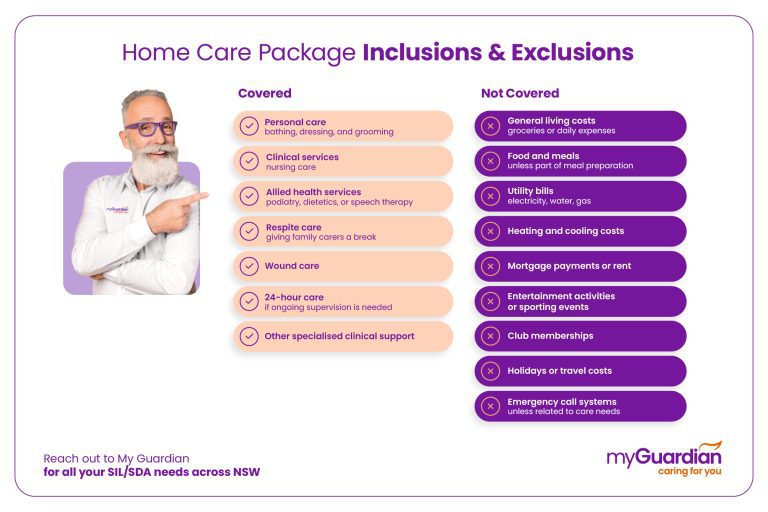What to look for in exceptional home care package providers
What to look for in exceptional home care package providers
Blog Article
All About Home Care Providers for Individuals With Disabilities: NDIS Registered Support
Home treatment solutions under the NDIS play a crucial role in supporting people with impairments. These solutions are designed to improve day-to-day living through tailored help, ranging from individual like flexibility support. Comprehending how to browse these alternatives can be complicated. This summary checks out the numerous facets of NDIS home care, from available services to the choice of companies, highlighting crucial factors to consider for those looking for assistance. The journey towards encouraged treatment starts below.
Understanding the NDIS and Its Purpose
The National Impairment Insurance Policy System (NDIS) offers as a transformative framework developed to offer support and solutions for people with disabilities. Established to enhance the lifestyle and assurance equitable access to vital resources, the NDIS equips participants by providing personalized plans customized to their unique needs. It intends to foster independence, making it possible for people to seek their personal goals and aspirations.Through an organized strategy, the NDIS designates funding for various supports, consisting of education and learning, employment support, and community involvement. This comprehensive system not only focuses on instant care yet additionally highlights long-term developing results. By promoting choice and control, the NDIS urges participants to choose their preferred solution carriers, ensuring that treatment straightens with their choices and worths. Inevitably, the NDIS represents a substantial commitment to boosting the lives of people with disabilities, fostering inclusivity, and constructing a much more encouraging society.
Sorts Of Home Treatment Provider Available
Different sorts of home care solutions deal with people with impairments, largely focusing on individual care help and reprieve care choices. Individual care help supplies necessary support with everyday tasks, while break treatment supplies short-term alleviation for primary caregivers. Understanding these services is crucial for guaranteeing the health of both people with impairments and their households.
Personal Care Aid
While maneuvering day-to-day live can offer difficulties for individuals with handicaps, personal care support supplies vital assistance customized to their unique requirements. This sort of home treatment solution encompasses a variety of tasks made to promote self-reliance and enhance lifestyle. Individual care assistants aid with everyday jobs such as showering, clothing, grooming, and toileting, making certain individuals keep individual health and convenience. They might also aid with meal preparation, medicine monitoring, and wheelchair assistance. By supplying individualized treatment, these professionals encourage people to engage more totally in their day-to-day regimens and social tasks. Overall, individual treatment help plays a considerable function in promoting dignity and freedom for those with specials needs, permitting them to grow in their home environment.

Respite Treatment Options
Respite care works as a vital resource for family members and caretakers of individuals with handicaps, giving short-lived remedy for the demands of everyday caregiving. This type of service can take different kinds, including at home break treatment, where trained professionals visit the home to help with care tasks. Households may choose for facility-based break treatment, where individuals receive treatment in a specialized setting, enabling caretakers to take a break. Furthermore, some companies provide emergency situation reprieve services for unanticipated situations. These choices not just help alleviate caregiver stress and anxiety but likewise advertise the health of individuals with handicaps by offering them new experiences and social communication. Overall, break care plays an important role in sustaining both caretakers and those they take care of.

Exactly How to Gain Access To NDIS Home Treatment Solutions
Accessing NDIS home treatment solutions includes comprehending the qualification standards stated by the National Disability Insurance Coverage Plan. People should browse a structured application process to protect the required support tailored to their demands. This area will certainly make clear both the qualification demands and the steps included in requesting solutions.
Qualification Standards Explained
To get NDIS home care solutions, individuals must meet particular eligibility criteria that analyze their needs and conditions. Applicants should be aged between 7 and 65 years and have a significant and long-term disability that impacts their capacity to perform everyday tasks. Additionally, they should be an Australian person, a long-term homeowner, or hold a Protected Special Classification Visa. The NDIS calls for proof of the special needs, normally via medical assessments or reports. Furthermore, people should demonstrate that they need assistance to join financial and social life. These standards ensure that services are routed towards those that really need assistance, advertising freedom and enhanced lifestyle for people with specials needs.
Application Refine Steps
Can I Select My Own Assistance Employees Through NDIS?
The specific asked whether they might select their very own support employees under the NDIS structure. Generally, individuals have the flexibility to choose support workers, promoting customized care that aligns with their details demands and choices.
What Takes place if My Requirements Modification After Receiving Assistance?
If a person's demands modification after getting support, they need to interact these modifications to their provider. Adjustments can be made to the care strategy, guaranteeing that the assistance continues to be reliable and relevant for their conditions.

Are There Restricts on The Number Of Hours of Treatment I Can Receive?
The private asked about possible restrictions on the number of care hours obtained. Normally, such limits may exist based upon particular policies or moneying setups, highlighting the importance of examining standards and agreements routinely.
Can I Make Use Of NDIS Funding for Home Modifications?
The question of utilizing financing for home modifications arises frequently. Typically, individuals might make use of NDIS funding for necessary alterations why not try here to their homes, guaranteeing availability and safety and security, section upon meeting particular eligibility standards and guidelines.
Exactly how Do I Handle Grievances About My Home Treatment Solutions?
To resolve complaints concerning home treatment solutions, individuals ought to first document their issues. They can communicate directly with their service supplier, seeking resolution, or intensify the problem to appropriate oversight bodies if needed. Home treatment solutions under the NDIS play a crucial function in sustaining individuals with specials needs. Different kinds of home treatment services provide to people with handicaps, mainly focusing on individual treatment support and respite treatment choices. home care providers. Individual care aid offers necessary support with day-to-day activities, while break care provides short-term relief for key caretakers. Family support at home members may decide for facility-based break treatment, where people get care in a specialized environment, permitting caretakers to take a break. Exactly how can households successfully manage the monetary aspects of home care services for individuals with specials needs?
Report this page